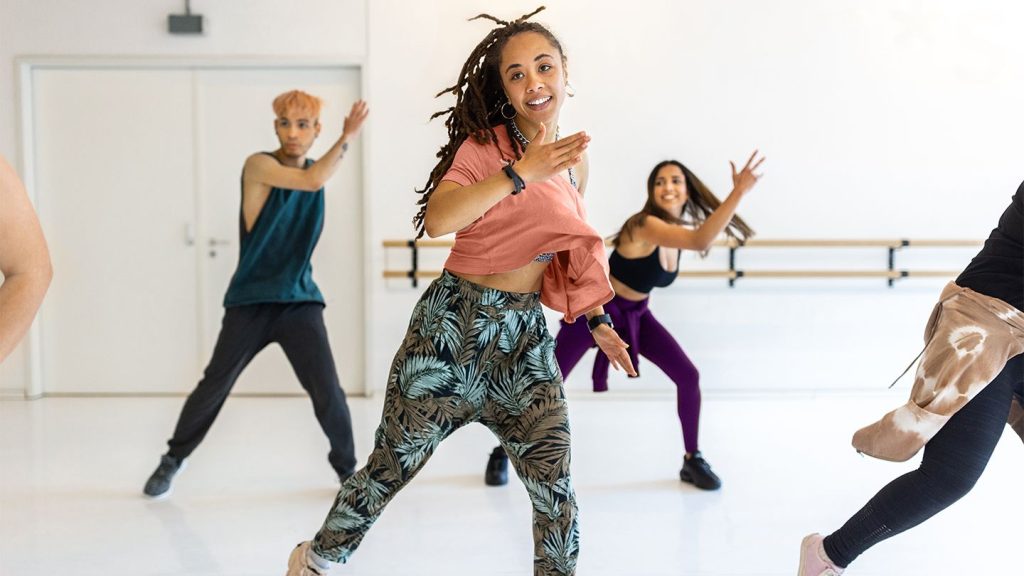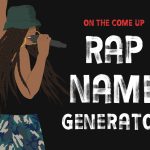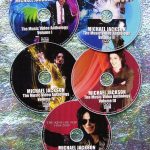Musica rap is a popular music genre that emerged in the 1970s, characterized by its rhythmic spoken lyrics over a beat. It originated in african american and latino communities in the united states and has since become a global phenomenon.
With its raw and often politically charged lyrics, musica rap serves as a platform for artists to express their thoughts and experiences. The genre has evolved over the years, incorporating various styles and subgenres such as gangsta rap, conscious rap, and trap music.
Musica rap continues to influence popular culture and spark conversations about social issues. Whether you’re a fan or a newcomer, the world of musica rap offers a diverse range of artists and perspectives to explore.

Credit: musically.com
Developing Rap Flow
Finding Your Unique Rap Style And Flow
Developing a unique rap style and flow is essential for every rapper. It sets you apart from the crowd and helps you create a distinct identity in the rap community. Here are some key points to consider when finding your unique rap style and flow:
- Explore different sub-genres: Rap has endless sub-genres, each with its own style and flow. Experiment with various sub-genres like trap, freestyle, conscious rap, or gangsta rap to discover what resonates with you. This exploration will help you find your own unique style and flow.
- Study influential rappers: Pay homage to the greats of the rap world. Study the techniques and styles of influential rappers like tupac, biggie, jay-z, eminem, and kendrick lamar. Analyze their delivery, wordplay, and rhyme schemes to inspire and develop your own style.
- Embrace your authenticity: Emphasize being true to yourself. Your rap style and flow should reflect your personality, experiences, and beliefs. Don’t imitate others, but instead, find your own voice and bring your own perspective to the table.
- Experiment with different flows: Try different rhythmic patterns and flows to find what suits you best. Play with variations in speed, emphasis, and delivery. This experimentation will help you develop your own signature flow that is unique to you.
- Write and freestyle regularly: Practice, practice, and more practice! Write lyrics and freestyle regularly to become comfortable with different flows and styles. The more you practice, the more confident you’ll be in developing your own unique rap style and flow.
Understanding The Importance Of Rhythm And Cadence
Rhythm and cadence are the backbone of rap music. They are what set the groove and overall feel of a rap song. Here are some key points to understand the importance of rhythm and cadence in rap:
- Master the beat: The beat serves as the foundation for your rap. Find ways to synchronize your flow with the rhythm of the beat. This synchronization creates a seamless flow that captivates listeners.
- Emphasize word placement: Pay attention to where you place emphasis on certain words within your lyrics. Proper word placement can enhance the overall rhythm and cadence of your rap. Experiment with different placements to create a unique and engaging flow.
- Utilize pauses and breaths: Incorporate pauses and breaths strategically in your rap to create rhythmic dynamics. Pauses can add impact to certain lines or words, while well-controlled breaths ensure a smooth and continuous delivery.
- Develop your internal clock: Develop a strong sense of timing and rhythm. Practice rapping alongside a metronome to improve your ability to stay on beat. This internal clock will help you maintain a consistent flow and avoid stumbling over the rhythm.
Mastering the fundamentals of rhythm and cadence will allow you to create captivating rap flows that draw listeners in.
Mastering Breath Control For Seamless Delivery
Breath control is an often overlooked but critical aspect of rap delivery. It allows you to maintain a consistent flow, project your voice, and deliver flawless performances. Here are some key points to master breath control for seamless delivery:
- Practice proper breathing techniques: Learn diaphragmatic breathing techniques to maximize lung capacity and control. Breathing from the diaphragm instead of shallow chest breathing allows for deeper breaths and longer phrases when rapping.
- Manage your breaths effectively: Strategically plan where to take breaths within your lyrics. Avoid taking breaths in awkward places that disrupt the flow. Train yourself to take quick and discreet breaths during pauses or at natural breaks in the lyrics.
- Control your exhalation: Control the release of air when rapping to ensure each word is enunciated clearly. Avoid exhaling too forcefully, which can lead to rushed or mumbled delivery. Focus on maintaining control throughout your breath cycles.
- Increase your lung capacity: Engage in regular cardio exercises to improve your lung capacity. This will allow you to take longer breaths and deliver longer verses without running out of breath.
By mastering breath control, you’ll be able to deliver your raps seamlessly, without any interruptions or loss of energy. Practice regularly to improve your breath control techniques and incorporate them into your rap performances.
Remember, finding your unique rap style and flow, understanding the importance of rhythm and cadence, and mastering breath control are crucial elements for any rapper. Embrace your authenticity, experiment with different techniques, and dedicate yourself to regular practice. With time and effort, you’ll develop a rap flow that is uniquely yours, allowing you to stand out in the world of rap music.
Crafting Engaging Lyrics
When it comes to rap music, one of the most crucial elements that can captivate listeners is the quality of the lyrics. Crafting engaging lyrics requires a combination of creativity, storytelling techniques, and the clever use of wordplay. In this section, we will explore some key strategies to help you enhance your rap lyrics and create content that resonates with your audience.
Choosing The Right Topics And Themes
When writing rap lyrics, selecting the right topics and themes can make all the difference. Here are some tips to help you choose engaging subjects for your songs:
- Reflect on personal experiences: Draw inspiration from your own life experiences and emotions. Authenticity can greatly impact the relatability of your lyrics.
- Social issues: Addressing social issues in your rap lyrics can have a powerful impact. Choose topics that resonate with your audience, such as inequality, racism, or mental health.
- Storytelling: Weaved narratives can captivate listeners. Think about exploring topics that paint a vivid picture and take your audience on a journey.
Incorporating Storytelling Techniques In Your Lyrics
Storytelling is a powerful tool for crafting engaging rap lyrics. Here are some techniques to consider:
- Character development: Create characters in your lyrics that your audience can connect with. Develop their traits, struggles, and aspirations to make your lyrics more relatable.
- Conflict and resolution: Introduce conflict in your storytelling to create tension. Show the struggle and then provide a resolution to keep your listeners engaged.
- Imagery: Use descriptive language to set the scene and create vivid imagery in the minds of your listeners. This helps to transport them into your story and enhances their listening experience.
Using Metaphors And Wordplay To Enhance Your Rap
Metaphors and wordplay can add depth and creativity to your rap lyrics. Here are some techniques to consider:
- Metaphors: Compare two unrelated things using figurative language. Metaphors can make your lyrics more vivid and thought-provoking.
- Wordplay: Play with words, rhymes, and witty phrases to add cleverness to your lyrics. This can include using homophones, double entendres, or puns to create memorable lines.
- Alliteration and rhyme: Incorporate alliteration and rhyme schemes to add musicality and rhythm to your lyrics. This can make them more enjoyable to listen to and easier to remember.
Remember, crafting engaging rap lyrics takes time and practice. Experiment with different techniques, be authentic, and find your unique voice. By choosing the right topics, incorporating storytelling techniques, and using metaphors and wordplay, you can create rap lyrics that leave a lasting impression on your audience.
So go ahead, unleash your creativity and let your lyrics shine.
Building Rap Vocabulary
Expanding Your Vocabulary For Lyrical Creativity
To excel in the world of rap, it’s crucial to have a strong command over your vocabulary. The more diverse and extensive your word bank is, the more creatively you can express yourself through your lyrics. Here are some key points to consider when it comes to building your rap vocabulary:
- Immerse yourself in literature and poetry: Reading books, poems, and other literary works can expose you to new words and unique expressions that can enhance your lyrical abilities.
- Expand your vocabulary by learning new words regularly: Make it a habit to learn at least one new word every day. This could be done through word-of-the-day apps, vocabulary-building exercises, or simply by looking up unfamiliar terms during your daily activities.
- Utilize the power of synonyms and antonyms: Using synonyms and antonyms can add depth and variety to your lyrics. Instead of relying on repetitive words, explore alternate expressions to make your verses more captivating.
- Explore different genres and styles of music: Listening to a variety of music genres can introduce you to different styles of wordplay and phrasing. Experiment with incorporating elements from genres like jazz, blues, or rock into your rap to expand your vocabulary.
- Collaborate with other artists: Interacting and working with fellow rappers can expose you to different perspectives and styles. Sharing ideas and engaging in freestyle sessions can help you learn new words and techniques from each other.
Incorporating Slang And Idioms In Your Rap
Rap music has a rich history of incorporating slang and idioms, which adds authenticity and relatability to the lyrics. Here’s why and how you can effectively integrate slang and idioms into your rap:
- Connect with your audience: Using slang and idioms familiar to your target audience can help you establish a deep connection with them. It makes your lyrics more relatable and creates a sense of shared experiences.
- Stay true to the rap culture: Hip-hop and rap have their own unique lexicon, filled with slang and idioms. Incorporating these elements into your rap showcases your understanding and appreciation of the genre.
- Pay attention to regional variations: Slang and idioms can vary significantly based on the region or community you belong to. Understanding the regional variations and incorporating them in your lyrics can enhance your authenticity and appeal.
- Strike a balance: While it’s important to use slang and idioms, it’s equally essential to strike a balance. Overusing them can make your lyrics incomprehensible to some listeners. Aim for a blend of slang and standard english to maintain clarity.
- Stay updated with evolving language: Slang and idioms are constantly evolving, so it’s essential to keep up with the latest trends. Stay connected with current popular culture and language to ensure your lyrics remain relevant and impactful.
Practicing Freestyle To Improve Improvisation Skills
Freestyling is a valuable tool for any aspiring rapper. It not only hones your improvisation skills but also allows you to fine-tune your delivery, flow, and wordplay. Here are some key points to consider when practicing freestyle:
- Start with structured exercises: Begin by practicing over simple beats or metronomes, focusing on maintaining a consistent flow and rhythm. Gradually, move on to more complex instrumentals to challenge yourself.
- Develop your word association skills: Freestyling requires quick thinking and the ability to connect words and concepts on the spot. Practice word association exercises to improve your improvisation skills.
- Embrace mistakes and learn from them: Freestyling is all about thinking on your feet, and mistakes are bound to happen. Embrace them as learning opportunities and use them to refine your skills.
- Engage in freestyle battles or cyphers: Participating in freestyle battles or joining rap cyphers can expose you to different styles and techniques. It also provides an opportunity to showcase your skills and receive constructive feedback from fellow artists.
- Record and analyze your freestyle sessions: Recording your freestyle sessions allows you to review and analyze your performance objectively. Listen back to identify areas for improvement and develop your unique style.
Remember, building your rap vocabulary, incorporating slang and idioms, and practicing freestyle are ongoing processes. Continuously challenging yourself and seeking inspiration from various sources will help you evolve as an artist and expand your lyrical creativity. So grab that pen, hit the beats, and let your words flow.
Perfecting Delivery And Performance
Working on stage presence and confidence:
- Your stage presence is crucial to capturing the audience’s attention and creating a memorable performance. Here are some key points to consider:
- Projecting confidence through your body language and facial expressions can instantly engage the audience.
- Making eye contact with individuals in the crowd creates a personal connection and enhances engagement.
- Experiment with different movements and gestures that align with the mood and rhythm of your rap.
- Practice your stage presence during rehearsals to ensure top-notch performance on the big day.
Utilizing vocal techniques for a powerful delivery:
- Mastering vocal techniques can elevate your rap delivery and make your performance stand out. Take note of the following points:
- Focus on your breath control to maintain a steady rhythm and deliver clear and powerful lyrics.
- Experiment with varying pitch, tone, and dynamics to add depth and emotion to your performance.
- Use articulation techniques such as enunciation and emphasis to ensure every word is understood by the audience.
- Incorporate vocal effects like vocal fry, vibrato, or ad-libs to showcase your versatility as an artist.
Overcoming stage fright and connecting with the audience:
- Overcoming stage fright is crucial to connecting with the audience and delivering a memorable rap performance. Consider these points:
- Visualize yourself succeeding and receiving a positive response from the audience to build confidence.
- Practice meditative techniques or deep breathing exercises to calm nerves before going on stage.
- Interact with the crowd by asking rhetorical questions or encouraging them to clap along during certain parts of your rap.
- Engage with the energy emanating from the audience and feed off their reactions to create an electric atmosphere.
Remember, perfecting delivery and performance is a continuous process. Keep honing your skills, experimenting with new techniques, and seeking feedback to become an even more captivating rap artist.
Collaborating And Networking
Musica rap is not just about creating your own beats and writing lyrics; it’s also about collaborating and networking with other artists in the industry. By working together and building connections, you can enhance your skills, gain exposure, and promote your music effectively.
In this section, we will delve into some key strategies for collaborating and networking in the rap music scene.
Collaborating With Other Artists To Enhance Your Skills
Collaboration is not only a great way to expand your network, but it can also elevate your musical abilities. Join forces with other talented artists and reap the benefits of shared knowledge and expertise. Here are some important points to consider:
- Find artists with complementary styles: Look for individuals whose music complements yours. Collaborating with artists who have different strengths can create a harmonious blend and push your creative boundaries.
- Organize writing sessions: Writing sessions with like-minded artists can inspire new ideas and help you refine your craft. By sharing your thoughts, experiences, and perspectives, you can create music that resonates with a wider audience.
- Learn from each other: During collaborations, take the opportunity to learn from your peers. Share tips, techniques, and tricks to develop new skills or improve existing ones. Mutual mentorship is a valuable asset in the rap music community.
- Experiment with different genres: Don’t limit yourself to just rap. Explore collaborations with artists from different genres to develop a unique sound that sets you apart from the crowd. Incorporating elements from other music styles can add depth and diversity to your tracks.
Attending Rap Battles And Open Mic Nights For Exposure
Rap battles and open mic nights provide invaluable exposure to emerging rap artists. These events offer a platform to showcase your skills, gain feedback, and network with industry professionals. Consider the following:
- Research local events: Look for rap battles and open mic nights in your area. Check out local venues, community centers, and music clubs to find opportunities to perform and connect with fellow artists.
- Prepare your best material: Practice and refine your best rap verses to deliver a captivating performance. Make sure your lyrics are sharp, your delivery is on point, and your stage presence is engaging.
- Engage with the audience: Connect with the audience during your performance by maintaining eye contact, using lively gestures, and engaging them with your energy. Their positive reaction can lead to new connections and fans.
- Network with other artists and industry professionals: Rap battles and open mic nights are excellent networking opportunities. Connect with other artists and industry professionals to build relationships, share experiences, and explore potential collaborations.
- Be open to feedback: Listen attentively to feedback from judges, fellow rappers, and audience members. Constructive criticism can help you grow as an artist and refine your skills.
Leveraging Social Media Platforms For Networking And Promotion
In today’s digital age, social media platforms play a pivotal role in networking and promoting your rap music. These platforms offer a vast audience and effective tools to connect with fans and industry influencers. Consider the following strategies for leveraging social media:
- Choose the right platforms: Identify the social media platforms where your target audience is most active. Focus your efforts on platforms like instagram, twitter, youtube, and soundcloud, as they are popular among rap music fans.
- Consistent branding: Maintain a consistent brand image across your social media profiles. Use high-quality visuals, cohesive themes, and a well-crafted bio to create an impactful online presence.
- Engage with your audience: Respond to comments, messages, and mentions from your followers. Initiate conversations, ask for feedback, and create a sense of community around your music.
- Collaborate with influencers: Connect with influencers and popular artists in the rap music industry. Collaborations or shout-outs from influential figures can significantly boost your visibility and gain you new fans.
- Share behind-the-scenes content: Give your audience a glimpse into your creative process and lifestyle. Share behind-the-scenes footage of studio sessions, performances, and personal experiences. Authenticity resonates with fans and strengthens your connection with them.
Collaborating and networking are crucial aspects of the rap music industry. By embracing these strategies and actively seeking opportunities to work with others, you can enhance your skills, gain exposure, and create a strong presence in the world of musica rap.
So, go out there, meet fellow artists, attend events, and use the power of social media to connect with your audience and make a lasting impact!
Overcoming Challenges And Rejections
Dealing With Criticism And Rejection In The Rap Industry
Receiving criticism and facing rejection are common experiences for any aspiring rapper. It’s essential to develop a resilient and determined mindset to navigate these challenges. Here’s how you can handle criticism and rejection in the rap industry:
- Develop a growth mindset: Embrace criticism as an opportunity to grow and improve your skills. View rejection as a stepping stone towards eventual success.
- Separate constructive criticism from negativity: Not all criticism is created equal. Learn to filter out valuable feedback from baseless negativity. Constructive criticism can help you identify areas for improvement and refine your craft.
- Surround yourself with a supportive network: Share your work with fellow artists, mentors, and friends who understand and appreciate your talent. Their constructive feedback and encouragement will help you face rejection with resilience.
- Refine your skills: Use rejection as motivation to refine your skills. Analyze feedback, identify weaknesses, and work on honing your unique style, flow, and lyricism.
- Don’t take it personally: Remember that rejection is not a reflection of your worth as an artist. Often, it is subjective and based on individual preferences or industry trends. Learn to separate your identity from the opinions of others.
- Stay focused on your goals: Set clear goals and objectives for yourself as a rapper. Keep your vision in mind and let it drive you forward, regardless of roadblocks or rejections along the way.
Staying Motivated And Persistent During Setbacks
Overcoming setbacks is a crucial part of any rapper’s journey. To stay motivated and persistent, consider the following:
- Visualize success: Imagine yourself achieving your goals and visualize the path to get there. Use this vision as a source of motivation during difficult times.
- Set realistic expectations: Understand that progress takes time and setbacks are natural. Set realistic and achievable goals for yourself, breaking them into smaller milestones to keep yourself motivated.
- Celebrate small victories: Recognize and celebrate small victories along the way. Each tiny achievement brings you closer to your ultimate goal, reinforcing your motivation.
- Seek inspiration: Surround yourself with sources of inspiration, such as music, books, or documentaries about successful rappers. Learn from their journey and understand that they too faced setbacks and overcame them.
- Find motivation in challenges: View setbacks as opportunities to grow and learn. Use them as fuel to improve your skills and develop resilience. Remember that some of the greatest rap artists faced numerous obstacles before achieving success.
Learning From Failures To Improve Your Craft
Failures are stepping stones towards progress and growth. They provide valuable lessons that can help you enhance your rap skills. Here’s how you can learn from your failures to improve your craft:
- Analyze and reflect: Take the time to analyze your failures objectively. Identify the specific areas that need improvement and reflect on what went wrong.
- Experiment and innovate: Use failures as an opportunity to experiment with new styles, flows, or lyrical techniques. Embrace a growth mindset by exploring different creative approaches.
- Seek feedback: Don’t hesitate to seek feedback from trusted individuals within the music industry. Their insights can help you identify blind spots and guide your improvement journey.
- Practice consistently: Embrace deliberate practice by consistently working on your rap skills. Dedicate time each day to refine your delivery, flow, and wordplay.
- Stay humble and open-minded: Acknowledge that there is always room for improvement, regardless of your skill level. Stay open to feedback and new ideas, continuously striving to evolve as an artist.
Remember, success in the rap industry is not solely determined by talent but also by resilience, perseverance, and the ability to learn from setbacks. Embrace criticism, stay motivated, and learn from your failures to pave the way for a successful rap career.
Frequently Asked Questions On Musica Rap
What Is Rap Music?
Rap music is a popular genre characterized by rhythmic and rhyming speech, often accompanied by beats and instrumental music. It originated in african american and caribbean communities and has since become a global phenomenon.
Who Are Some Famous Rap Artists?
Some famous rap artists include eminem, jay-z, kendrick lamar, nicki minaj, and drake. These artists have made significant contributions to the genre and have achieved great success and recognition worldwide.
How Has Rap Music Evolved Over The Years?
Rap music has evolved significantly since its inception in the 1970s. It has expanded its lyrical themes, experimented with different musical styles, and gained mainstream popularity. Today, rap encompasses various sub-genres and continues to evolve with new trends and influences.
Why Is Rap Music So Popular?
Rap music is popular due to its ability to express raw emotions, address social issues, and tell compelling stories. Its catchy beats, clever wordplay, and relatable lyrics resonate with a wide audience, making it a powerful form of artistic expression and cultural commentary.
Is Rap Music Only About Violence And Explicit Content?
No, rap music is not solely characterized by violence and explicit content. While some artists do explore these themes, many others focus on a wide range of topics, including personal experiences, social struggles, love, and ambition. Rap music is a diverse and dynamic genre with something for everyone.
Can Anyone Become A Rap Artist?
Anyone with a passion for rap music can potentially become a rap artist. However, building a successful career in the industry requires talent, hard work, dedication, and a unique voice. It also helps to have a strong understanding of the genre’s history and culture.
Conclusion
In this blog post, we delved into the world of rap music, exploring its origins, evolution, and impact. Rap music has transcended barriers and become a global phenomenon, captivating listeners with its unique blend of rhythm and lyrics. From its humble beginnings in marginalized communities to its mainstream success, rap music has provided a platform for artists to express their experiences, thoughts, and emotions.
Its ability to tackle social issues and challenge societal norms has contributed to its enduring popularity. As we have seen, rap music has undergone various transformations, incorporating different styles and influences, while staying true to its core essence. With its powerful storytelling and infectious beats, rap music continues to engage and resonate with audiences across generations.
So, whether you’re a rap enthusiast or someone new to the genre, there’s no denying the immense impact and cultural significance of rap music in our world today.













